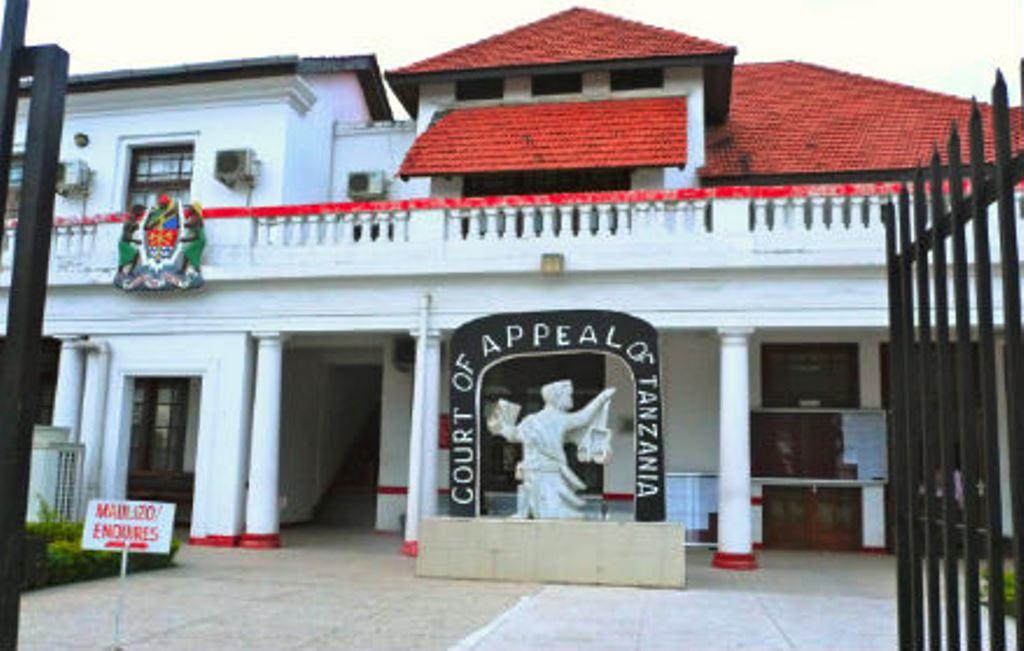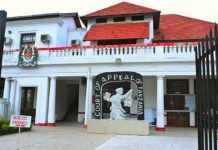AfricaPress-Tanzania: THE Court of Appeal has ordered the High Court to compose its judgment afresh in the compensation suit involving Mtei Bus Services Limited and a passenger, Kumbwandumi Ndossi, who sustained injuries in car accident, while travelling from Babati to Arusha.
Justices Augustine Mwarija, Ignas Kitusi and Reheme Kerefu reached into the decision after determining an appeal lodged by Mr Ndossi to oppose the judgment given by the High Court, which nullified the proceedings of the trail court that ordered Mtei Company to pay 50m/- to the passenger.
They returned back to the High Court following the proceedings of the case after noting that when composing the judgment, the judge introduced a new issue regarding principal of vicarious liability to reach into conclusion before giving the parties into the matter an opportunity of being heard.
“Therefore, a denial of the right to be heard in any proceedings would vitiate the entire proceedings. Consequently, we remit the case file to the High Court for it to compose a judgment after hearing the parties on that issue,” the justices declared.
According to the justices of the appeal court, the highest temple of justice in the country, basically, cases must be decided on the issues or grounds on record.
They said if it is desired by the court to raise other new issues either founded on the pleadings or arising from the evidence adduced by witnesses or arguments during the hearing of the appeal, those new issues should be placed on record and parties must be given an opportunity to be heard by the court.
Referring to Article 13 (6) (a) of the Constitution of the United Republic of Tanzania, 1977, the justices insisted that the Court has always emphasised that the right to be heard is a fundamental principle of natural justice which should be observed by all courts in the administration of justice.
They noted in the case that it was evident the parties were not accorded the right to be heard and address the court on the new issue on the applicability of the principle of vicarious liability which was raised by the learned High Court Judge when composing the judgment.
Therefore, the justices said, the High Court Judge arrived at its finding in contravention of the right to be heard. Such omission, they said, amounted to a fundamental procedural error which occasioned a miscarriage of justice to the parties.
“Consistent with the settled law, the resultant effect is that, such finding cannot be allowed to stand. It was a nullity. In the circumstances, since we have held that finding a nullity, we hereby quash the judgment of the High Court and set aside the orders arising there from,” they ruled.
On March 19, 2003 at Babati, Ndossi boarded Mtei’s bus make Mitsubishi travelling to Arusha. On the way the bus was involved in an accident and Mr Ndossi sustained injuries which caused him to be hospitalised at Mount Meru Hospital and Kilimanjaro Christian Medical Centre (KCMC).
Thereafter and upon being discharged from the hospital and making a follow up on his rights, he was paid a compensation by an insurance company at the tune of 2m/-. Mr Ndossi was not satisfied with the said amount and he persistently made several demands to Mtei Company without success.
As a result, he decided to institute a suit against the company in the District Court of Arusha. In that suit, Mr Ndossi, among other things, claimed to be paid 14,850,000/- specific damages for the sustained injuries and 50m/- as general damages.
The Mtei Company disputed the appellant’s claims, but in the end, the trial court entered judgment in favour of the passenger and ordered the company to pay him 50m/- as general damages and interest on the decretal sum at 7 per cent per annum from the date of judgment to final payment.
Aggrieved, the company appealed to the High Court of Tanzania at Arusha. Having heard the parties, the High Court in the course of composing its judgment observed that the suit before the District Court was supposed to be brought under principle of vicarious liability that was to be specifically pleaded.
Based on that finding, the High Court Judge allowed the appeal and nullified the entire proceedings of the trial court and set aside the judgment and decree.



